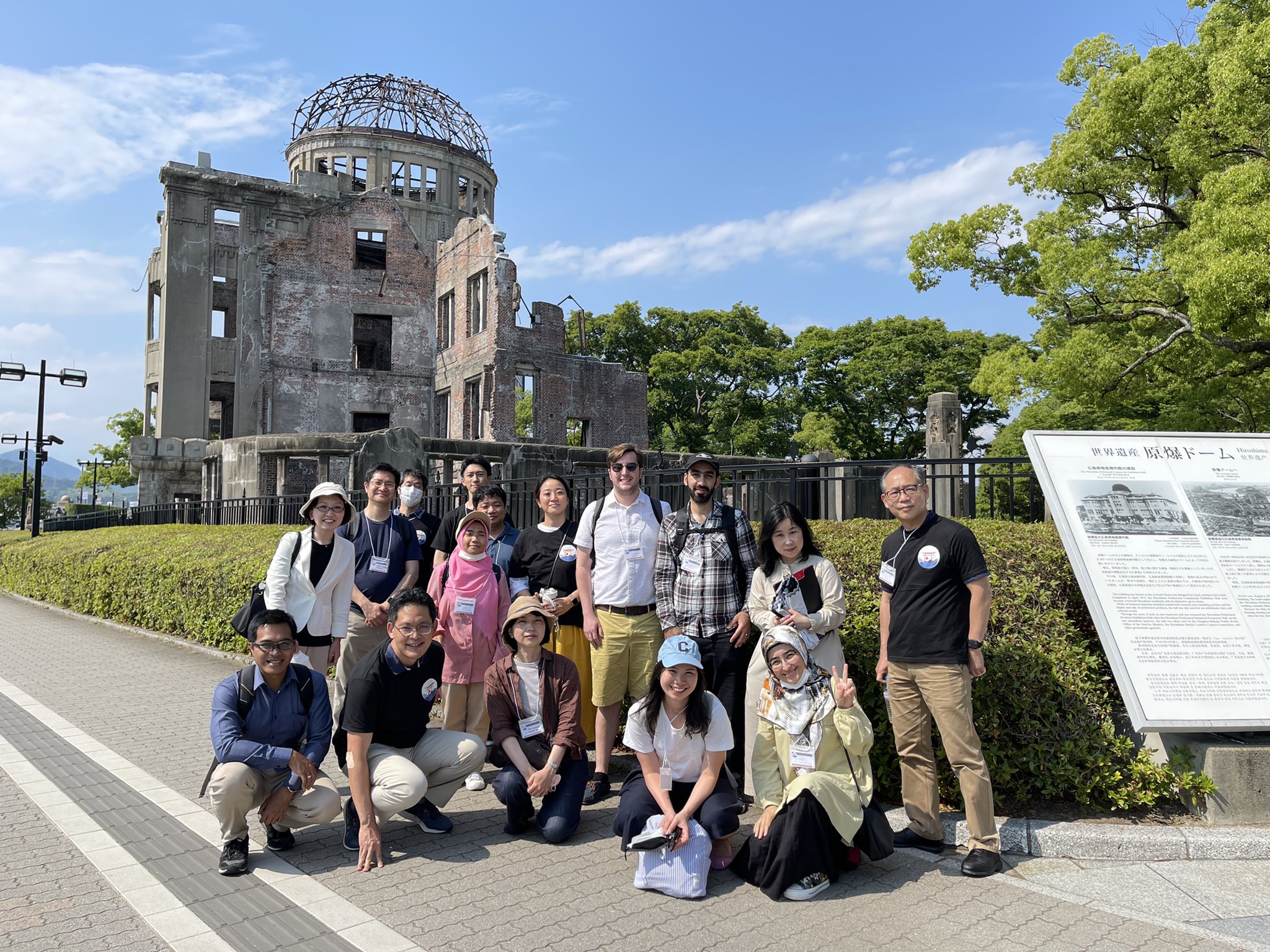Students and faculty in the MST Department have presented at a number of interesting conferences this year, including several members of the Snow Day Learning Lab traveling to attend and present at the International Society for the Learning Sciences (ISLS) 2022 Annual Meeting in Hiroshima, Japan. ISLS is a professional society for academics, practitioners and students “dedicated to the empirical investigation of learning as it exists in real-world settings and to how learning may be facilitated both with and without technology” (https://www.isls.org/about/). Each year, their annual meeting brings together scholars from all over the world to present about and discuss timely, important issues across the entire field of the Learning Sciences. This year’s theme for the conference was “International Collaboration toward Educational Innovation for All: Overarching Research, Development, and Practices.”
Two Snow Day Learning Lab members presented their work at ISLS 2022. 2022 Doctoral graduate Dr. Monica Chan gave a presentation titled “Investigating Synchronous & Asynchronous Feedback in an Elementary School Maker Education Classroom,” which aligns with her broader research focus on creating inclusive and diverse spaces for all children to learn. Snow Day Learning Lab alum Dr. Sam Thanapornsangsuth presented a paper titled “#WhiteRibbonAgainstDictatorship: Exploring youth participation in Thailand’s 2020-2021 political turmoil.” Dr. Thanapornsangsuth is a tenure-track lecturer in the Department of Educational Policy, Management, and Leadership at Chulalongkorn University, where she studies ways to give children the chance to design, create, and invent projects that are meaningful to them.
The Snow Day Learning Lab, directed by Professor Nathan Holbert, is a research group and design lab housed in MST’s Communications, Media & Learning Technologies Design Program. Their primary goal is “to understand how people make sense of their world through play” (https://www.snowdaylearninglab.org/). Snow Day is home to a number of projects which contribute to the learning sciences in line with ISLS’s mission. The Connected Spaces (C/S) project, for example, is developing a technological toolkit and framework to connect youth makers with peers, mentors, and technical assistance. The Make with Data project, which engages high-school aged learners in an after-school club that uses data to identify and design a potential solution to a community challenge, is another example of a Snow Day project dedicated to this work. As we continue to strive for equity within education, Snow Day continues to build tools and spaces which can help to make this a reality. We can’t wait to see what the lab does next!
